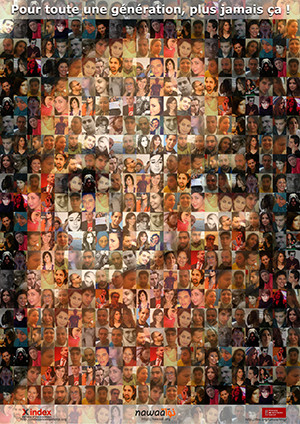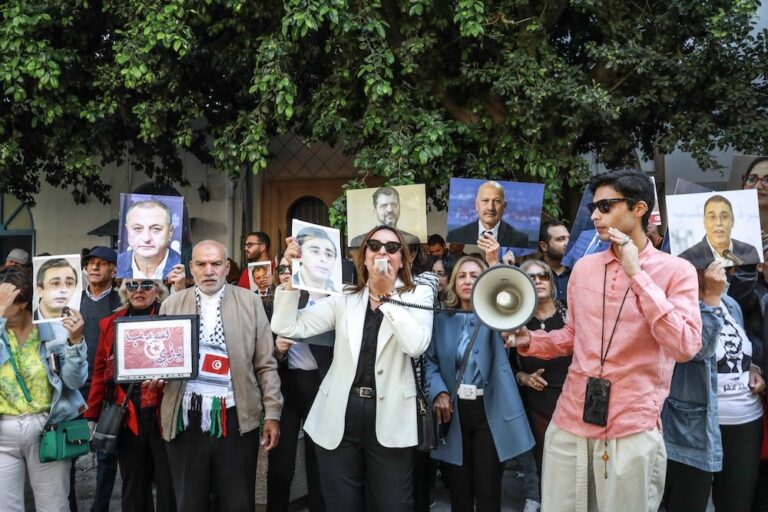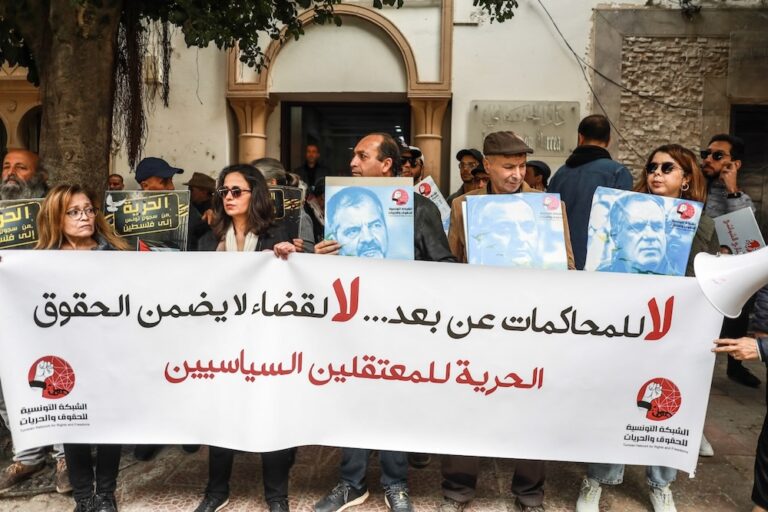Ahead of a court of appeal hearing on 28 May, IFEX-TMG urges judiciary to quash the seven-year prison terms handed down to Ghazi Ben Mohamed Beji and Jaber Ben Abdallah Majri for online publishing.
(IFEX-TMG) – 25 May 2012 – Ahead of a court of appeal hearing on 28 May, the International Freedom of Expression Exchange (IFEX) Tunisia Monitoring Group (IFEX-TMG), a coalition of 21 IFEX members, urges the Tunisian judiciary to quash the seven-year prison terms handed down in late March to Ghazi Ben Mohamed Beji and Jaber Ben Abdallah Majri.
Both men were convicted on 28 March by the First Degree Court of Mahdia for publishing online satirical writings about Islam and the Prophet, materials deemed “liable to cause harm to public order or public morals.” Majri has been in prison since 5 March, while Beji, who fled to Europe where he is seeking political asylum, was convicted in absentia. Lawyers launched an appeal only in Majri’s case, because they said they feared they would lose an appeal for Beji in absentia. The Monastir Court of Appeal is expected to make its ruling on Monday.
“An important free speech case in Tunisia seems to have slipped through the cracks,” stated Robert Russell, Director of Cartoonists Rights Network International, an IFEX-TMG member. “There is an undercurrent of fear. Fear that extremists, having threatened these men and their families, are sending a message to the Tunisian authorities that their views should not be challenged,” he added.
This case against social media users also flies in the face of the statement by Minister for Human Rights and Transitional Justice Samir Dilou that “the Internet was a partner in the revolution so the government would not punish this partner.” The Minister made this comment before the UN Human Rights Council on 22 May in Geneva, where he led the Tunisian delegation at the Universal Periodic Review of Tunisia. The IFEX-TMG is calling on Minister Dilou to stand firm by his words and protect free speech in Tunisia.
“People have every right to dislike certain content that they deem offensive and to express their dislike peacefully. What cannot be accepted is when magistrates appointed to protect fundamental rights choose to infringe them in the name of their personal beliefs,” stated Riadh Guerfali, a lawyer and co-founder of the participatory website Nawaat.org.
“After the case against Nasreddine Ben Saïda, director of the daily newspaper Ettounsiyya, and the one against Nabil Karoui, director of Nessma TV, this is at least the third case in which the new Tunisian authorities have brought charges for speech deemed offensive to Islam or morality, using Ben Ali’s autocratic laws,” stressed Virginie Jouan, IFEX-TMG Chair. “Tunisians have paid a high price to enjoy and exercise their full right to free expression, not a downgraded version of it,” she added.



